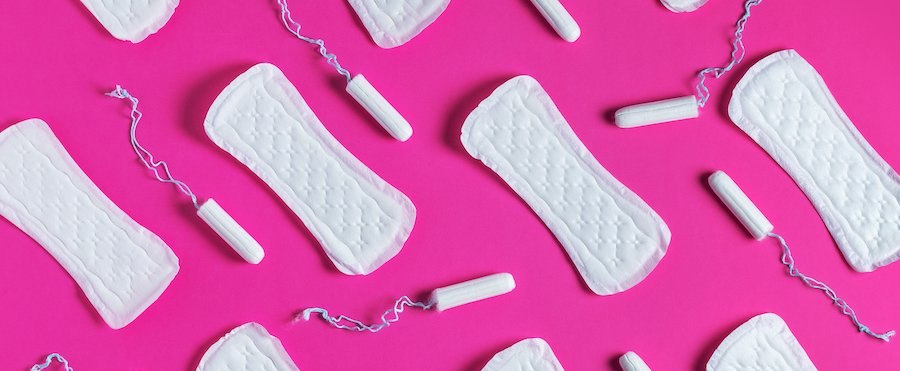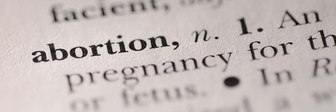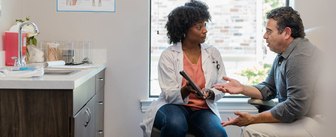The subject of menstruation historically has been surrounded by misconceptions and unease. One benefit to online public opinion polling is that it gives people the opportunity to share their experiences and perspectives on taboo topics privately in a way that can inform the public on important but underexplored issues. A recent YouGov poll of 2,000 Americans — including 1,014 women who have ever menstruated, 430 of them currently having periods — provides insights into how adults in the U.S. view and experience periods. The survey explored topics such as the age people got their first period, how they were educated about menstruation, and their experiences with period pain and pain management.
First menstrual period
The experience of a first menstrual period varies greatly among women, with factors such as age and preparedness affecting their initial impressions.
The most common ages that American women say they had their first periods are 12 (25%) and 13 (23%); 24% say their first period was at age 11 or younger and a similar share (25%) say it was when they were 14 or older.
Few women feel as if they were prepared for their first period: 15% say they were very prepared, 33% say they were somewhat prepared, and 48% say they were not very or not at all prepared. One in five women who've had periods – 21% — say they didn't understand what was happening to them when they had their first one.
More women describe the experience of their first period as very or somewhat negative (39%) than describe it as very or somewhat positive (16%). Around one-third (36%) describe it as neither positive nor negative. Two-thirds (68%) of women who say they lacked an understanding of what was happening during their first period describe the experience of it as a negative one. The less prepared women say they felt, the more likely they are to say their first experience was negative.
Period education
Nearly three-quarters of women say they learned about periods when they were age 12 or younger. About half — 54% — say they were taught about periods by a parent or guardian; 10% say they were taught by a teacher and 9% by a sibling or other relative. Women are twice as likely as men (54% vs. 25%) to have been first taught about periods by a parent or guardian, while men are more likely to have been taught by a teacher (16%) and a sibling or other relative (14%).
More people say they were not taught enough about periods in K-12 school (37%) than say they were taught too much (5%); 41% say they were taught the right amount. The numbers are similar among both women and men, and also similar for how much boys and girls are taught about periods in schools now.
While most people agree that girls and boys should receive at least some information about periods in school, there is some divergence in opinions on how they are taught. Americans are more likely to say girls and boys should be taught about periods separately than to say they should be taught together in the same class (43% vs. 28%); the numbers among men and women in our survey are similar. Opinions are split according to age, with older Americans being far more likely than younger Americans to favor gender-segregated period education.
Period tracking
Two-thirds of women who have menstrual periods say they track their period in some way: 37% say they do so using an app and 29% say they use another method.
Two in five women (39%) have a typical menstrual cycle length — measured from the first day of one period to the first day of the next period — of between 25 and 28 days; 24% say their cycle is shorter than this range and 30% say it is longer. People who track their periods are more likely than those who don't to know its typical length.
Around half of women who have a period (47%) say their period lasts between five and six days; 29% say it lasts between three and four days and 16% say it lasts between seven and eight days. Just 4% say their average period lasts less than three days (2%) or more than eight days (2%).
Half of women who menstruate (50%) describe their period as "moderate." More describe it as "very heavy" or "heavy" (28%) than as "very light" or "light" (17%).
Which products do menstruating women use during their periods? Many say they rely on more than one product; the largest share — 71% — say they use pads. Somewhat fewer — 45% — use tampons, 24% use period panties, and 14% use menstrual cups.
Period symptoms and pain management
On a scale of period pain ranging from 0 (no pain at all) to 10 (excruciating pain), half of women who menstruate (50%) rate the pain for their typical period as a 7 or above; 31% rate it between 4 and 6, and 16% rate it below 4— including 2% who say they typically have no pain at all. While 10% of women with periods say their typical pain is "excruciating" — meaning they rate it a 10 — more than twice as many (27%) describe the worst period pain they've had this way. About two-thirds of women — 70% — describe their worst-ever period pain as a 7 or above.
Most women who have periods say they always (38%) or sometimes (43%) have mood changes during or around their period. For each of fatigue, bloating, and cramps, at least three-quarters of women who have periods say they at least sometimes experience it. At least half at least experience each of food cravings, breast tenderness, headaches, or acne.
Women take a variety of measures to manage period pain. Majorities say they take over-the-counter medication (57%) or rest (55%). Some also use heating pads (41%), exercise (19%), or take prescription pain medication (14%).
About one-third of women who menstruate — 36% — say they've taken hormonal birth control to regulate their period or manage their period symptoms.
Many Americans have experiences with disorders that affect the female reproductive system – either personally or through relationships with people who they know to have been diagnosed with a disorder. One in four Americans — including 32% of women — say they know someone — including themselves, a friend, or a family member — with ovarian cysts. Around one in five know someone with endometriosis (21%) and a similar share know someone with uterine fibroids (19%). Women (64%) are far more likely than men (39%) to say they know someone who has been diagnosed with at least one of the eight female reproductive disorders asked about.
Period-related absences
About half of women who have ever menstruated – 54% — have had to miss at least one of school (36%), social events (30%), or work (28%) as a result of their period.
Women who describe their typical period pain as a 7 or above on a scale from 0 to 10 are especially likely to have missed out on something due to their period: 72% say they have, relative to just 20% of women who describe their typical pain as a 3 or below. Most women who say they've missed work due to their period (60%) say they don't tell their boss why they are missing; 36% say they typically do tell their boss why.
One thing that some people aren't keen to miss out on during a period is sex: 34% of Americans — including 37% of women and 30% of men — say they've had sex while they or a partner was on their period. Even fewer — 32% of women and 26% of men — say they would be willing to have sex with a partner while one of them was on their period.
Period stigma and communication
Women who menstruate are generally at least somewhat comfortable talking about their periods with their health care providers (75%). A slightly lower share — 69% — say they are comfortable talking with a spouse or romantic partner, though the difference is the result of some women not having a spouse or romantic partner. About as many are at least somewhat comfortable talking with their friends (70%). Only 38% are comfortable talking with their co-workers about the subject.
Most women who have menstruated (55%) say they've felt embarrassed about their period at some point, while 41% say they have never felt this way. Just 25% of women say there is currently hardly any stigma or no stigma at all around periods in the U.S., while 32% say there is some stigma and 23% say there is a great deal or a lot.
Note: Responses to questions on experiences with menstruation are limited to women in this analysis. This decision was aimed at ensuring data accuracy. However, this approach may not capture the experiences of people who identify as non-binary or transgender and also experience or have experienced menstruation.
— Carl Bialik and Linley Sanders contributed to this article
See the results for this YouGov poll
Methodology: The poll was conducted among 2,000 U.S. adult citizens, including 1,014 women who have ever menstruated, on two separate surveys from March 7 - 10, 2023 and March 8 - 12, 2023, with each survey taken by 1,000 U.S. adult citizens. Respondents were selected from YouGov’s opt-in panel using sample matching. A random sample (stratified by gender, age, race, education, geographic region, and voter registration) was selected from the 2019 American Community Survey. The sample was weighted according to gender, age, race, education, 2020 election turnout and presidential vote, baseline party identification, and current voter registration status. Demographic weighting targets come from the 2019 American Community Survey. Baseline party identification is the respondent’s most recent answer given prior to March 15, 2022, and is weighted to the estimated distribution at that time (33% Democratic, 28% Republican). The margin of error for the overall sample is approximately 2%; for women who have menstruated, it is approximately 4%.
Image: Getty (Dmytro Skrypnykov)











